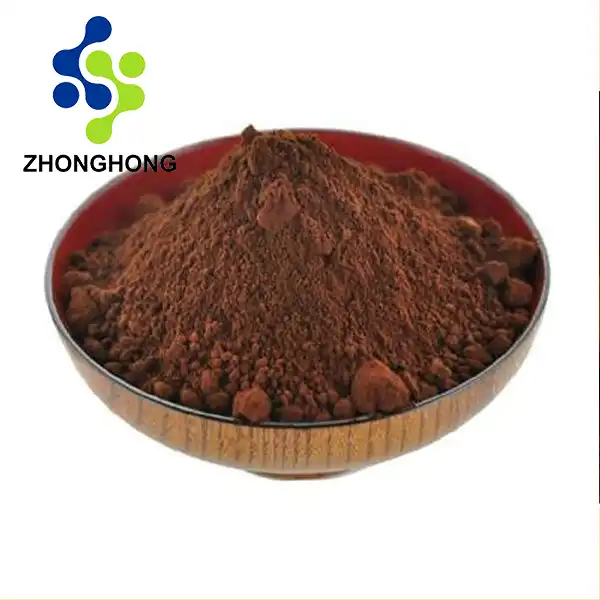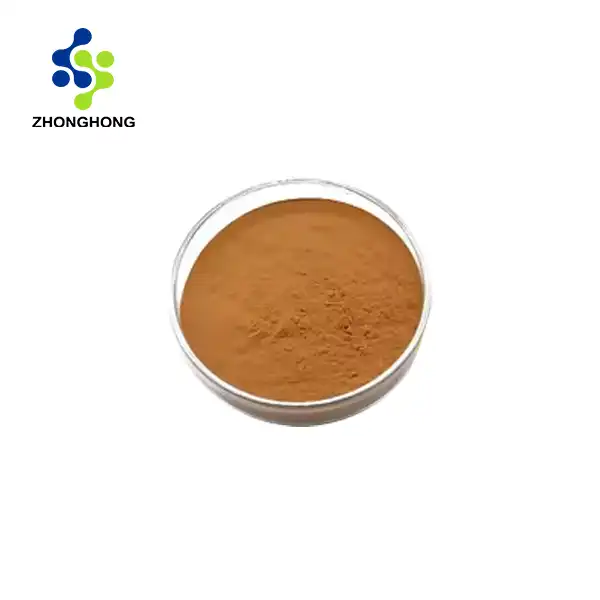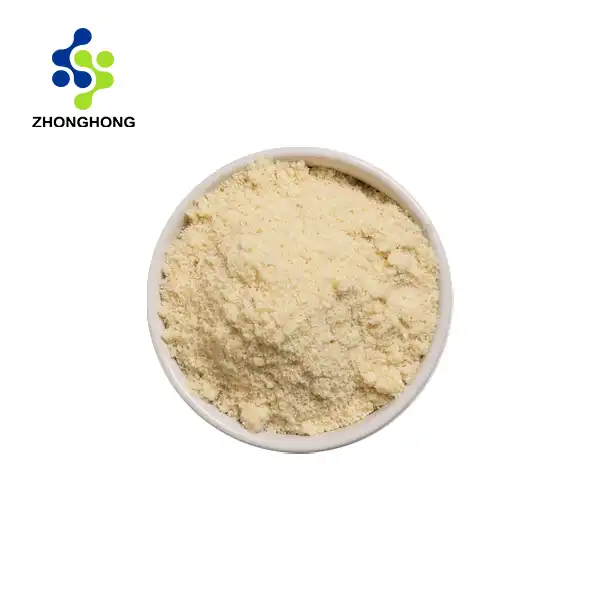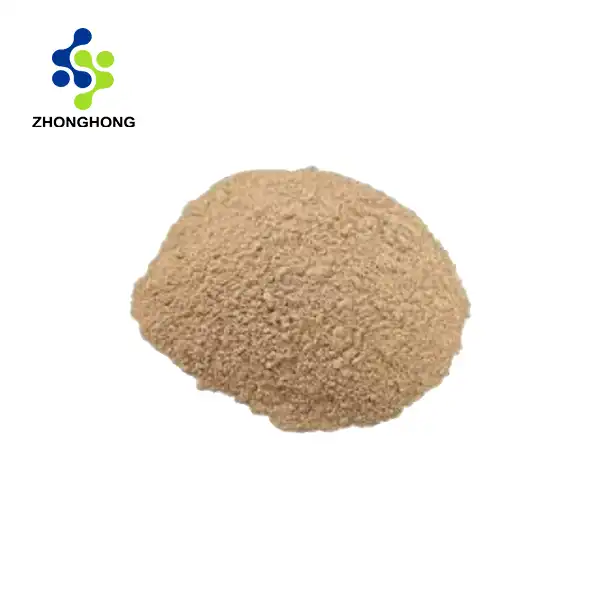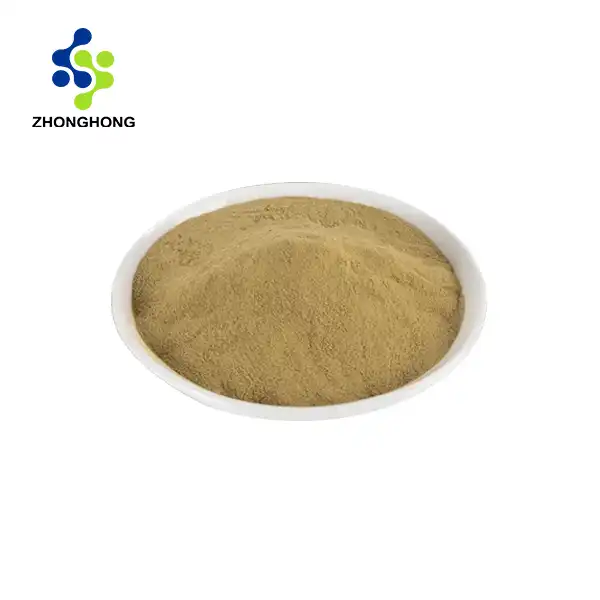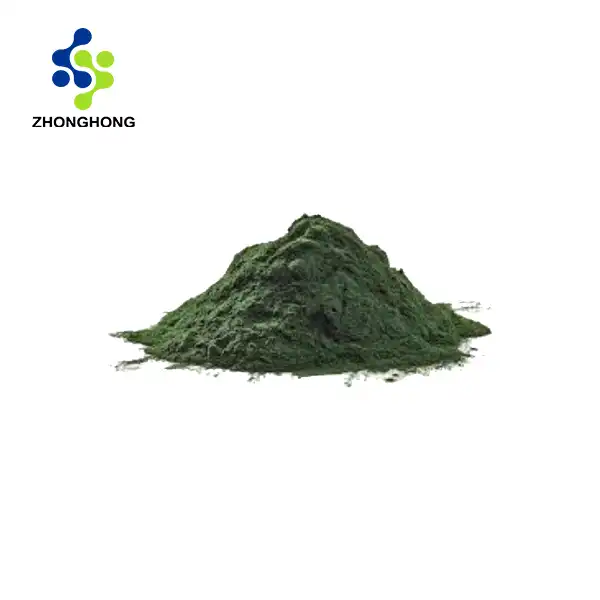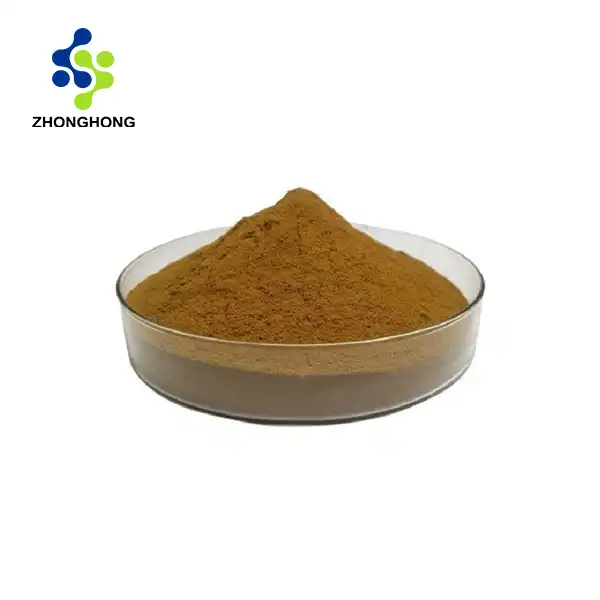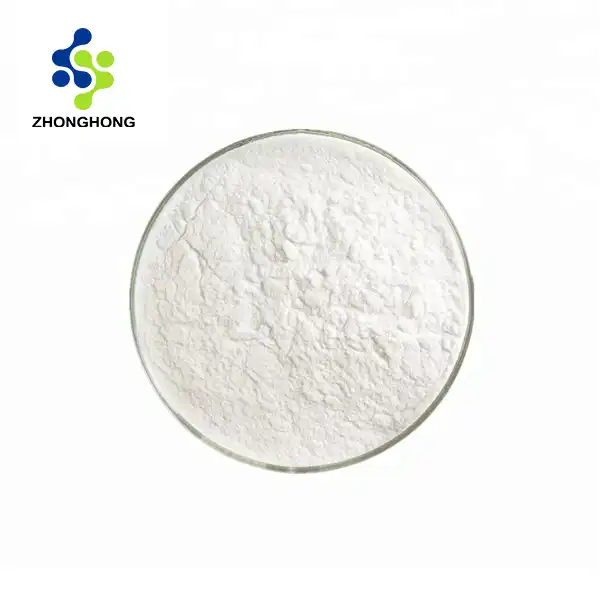Alpha Lipoic Acid Powder: A Natural Antioxidant Solution
2024-11-11 10:48:09
In the realm of natural health supplements, alpha lipoic acid powder has emerged as a potent antioxidant with numerous potential benefits. This versatile compound, found naturally in our bodies and certain foods, has garnered attention for its unique properties and wide-ranging effects. Let's delve into the world of alpha lipoic acid and explore why it's becoming increasingly popular among health enthusiasts.
Understanding Antioxidant Benefits of Alpha Lipoic Acid
Alpha lipoic acid, often referred to as ALA, is a sulfur-containing compound that plays a crucial role in energy metabolism. What sets it apart from other antioxidants is its amphipathic nature - it's both water and fat-soluble. This unique characteristic allows it to penetrate virtually all parts of our cells, making it an exceptionally effective antioxidant.
The antioxidant properties of alpha lipoic acid are multifaceted. It not only neutralizes harmful free radicals directly but also helps regenerate other antioxidants in the body, such as vitamins C and E. This "recycling" effect amplifies its antioxidant power, potentially providing more comprehensive protection against oxidative stress.
Research has shown that alpha lipoic acid may offer several health benefits:
- Blood Sugar Regulation: ALA has been observed to improve insulin sensitivity and glucose uptake, which could be beneficial for individuals with type 2 diabetes.
- Neuroprotection: Its ability to cross the blood-brain barrier allows it to potentially protect nerve tissues, making it a subject of interest in neurodegenerative disorders.
- Cardiovascular Health: By combating oxidative stress, ALA may contribute to heart health and help manage blood pressure.
- Skin Health: Some studies suggest that ALA could help reduce signs of skin aging by protecting against UV damage and promoting collagen production.
The versatility of alpha lipoic acid powder makes it an intriguing option for those seeking to bolster their antioxidant defenses and support overall health.
Comparing Alpha Lipoic Acid Powder to Other Antioxidants
While the antioxidant landscape is diverse, alpha lipoic acid stands out for several reasons. Let's compare it to some other well-known antioxidants to understand its unique position:
Alpha Lipoic Acid vs. Vitamin C
Vitamin C is a powerhouse antioxidant, but it's limited to water-soluble environments. Alpha lipoic acid, being both water and fat-soluble, can work in a broader range of cellular environments. Additionally, ALA can help regenerate vitamin C, extending its antioxidant effects.
Alpha Lipoic Acid vs. Vitamin E
Vitamin E is a fat-soluble antioxidant that primarily protects cell membranes. While effective in its domain, it can't reach water-soluble parts of the cell. Alpha lipoic acid complements vitamin E by working in both environments and can also help recycle used vitamin E molecules.
Alpha Lipoic Acid vs. Coenzyme Q10
Coenzyme Q10 (CoQ10) is a potent antioxidant crucial for cellular energy production. While CoQ10 primarily works within the mitochondria, alpha lipoic acid can penetrate various cellular compartments. ALA also plays a role in energy metabolism, making it a good companion to CoQ10.
Alpha Lipoic Acid vs. Glutathione
Often called the "master antioxidant," glutathione is produced by our bodies. Alpha lipoic acid has been shown to increase glutathione levels, potentially enhancing the body's overall antioxidant capacity.
The unique properties of alpha lipoic acid don't make it superior to other antioxidants, but rather a valuable addition to a comprehensive antioxidant strategy. Its ability to regenerate other antioxidants and work in various cellular environments makes it a versatile tool in the antioxidant arsenal.
Best Dosages for Alpha Lipoic Acid Powder
Determining the optimal dosage of alpha lipoic acid powder can be complex, as it can vary based on individual needs and health conditions. However, some general guidelines can be helpful:
General Health Maintenance
For individuals looking to supplement for general health benefits, dosages typically range from 300-600 mg per day. This amount is often sufficient to provide antioxidant support without risking side effects.
Diabetic Neuropathy
Higher doses have been studied for specific conditions. For diabetic neuropathy, some studies have used dosages of 600-1200 mg per day, divided into two or three doses.
Weight Management
In studies examining ALA's potential effects on weight, dosages have ranged from 1200-1800 mg per day. However, it's important to note that the effects on weight loss have been modest in human studies.
Timing and Administration
Alpha lipoic acid is best absorbed on an empty stomach. Taking it about 30 minutes before meals can enhance absorption. If you experience any gastrointestinal discomfort, taking it with food may help.
Considerations and Precautions
While alpha lipoic acid is generally considered safe, there are some important considerations:
- Start with lower doses and gradually increase to assess tolerance.
- Individuals with diabetes should monitor blood sugar levels closely, as ALA may enhance insulin sensitivity.
- Those with thyroid conditions should consult their healthcare provider, as ALA may affect thyroid hormone levels.
- Pregnant or breastfeeding women should avoid supplementation due to lack of safety data.
It's crucial to remember that while alpha lipoic acid powder offers promising benefits, it's not a magic bullet. It should be part of a holistic approach to health that includes a balanced diet, regular exercise, and overall healthy lifestyle choices.
Conclusion
The world of antioxidants is vast and complex, and alpha lipoic acid powder represents an exciting frontier. Its unique properties and potential benefits make it a valuable consideration for those looking to enhance their antioxidant intake. As research continues to unfold, we may discover even more about this versatile compound and its role in supporting human health. Remember, while supplements can be beneficial, they're not substitutes for a healthy lifestyle. Always consult with a healthcare professional before starting any new supplement regimen, especially if you have existing health conditions or are taking medications. If you want to get more information about this product, you can contact us at liaodaohai@gmail.com.
References
1. Shay, K. P., Moreau, R. F., Smith, E. J., Smith, A. R., & Hagen, T. M. (2009). Alpha-lipoic acid as a dietary supplement: molecular mechanisms and therapeutic potential. Biochimica et Biophysica Acta (BBA)-General Subjects, 1790(10), 1149-1160.
2. Gorąca, A., Huk-Kolega, H., Piechota, A., Kleniewska, P., Ciejka, E., & Skibska, B. (2011). Lipoic acid - biological activity and therapeutic potential. Pharmacological Reports, 63(4), 849-858.
3. Ziegler, D., Ametov, A., Barinov, A., Dyck, P. J., Gurieva, I., Low, P. A., ... & Samigullin, R. (2006). Oral treatment with α-lipoic acid improves symptomatic diabetic polyneuropathy. Diabetes care, 29(11), 2365-2370.
4. Packer, L., Witt, E. H., & Tritschler, H. J. (1995). Alpha-lipoic acid as a biological antioxidant. Free radical biology and medicine, 19(2), 227-250.
5. Koh, E. H., Lee, W. J., Lee, S. A., Kim, E. H., Cho, E. H., Jeong, E., ... & Lee, K. U. (2011). Effects of alpha-lipoic acid on body weight in obese subjects. The American journal of medicine, 124(1), 85-e1.
6. Biewenga, G. P., Haenen, G. R., & Bast, A. (1997). The pharmacology of the antioxidant lipoic acid. General Pharmacology: The Vascular System, 29(3), 315-331.
_1728976869676.webp)
